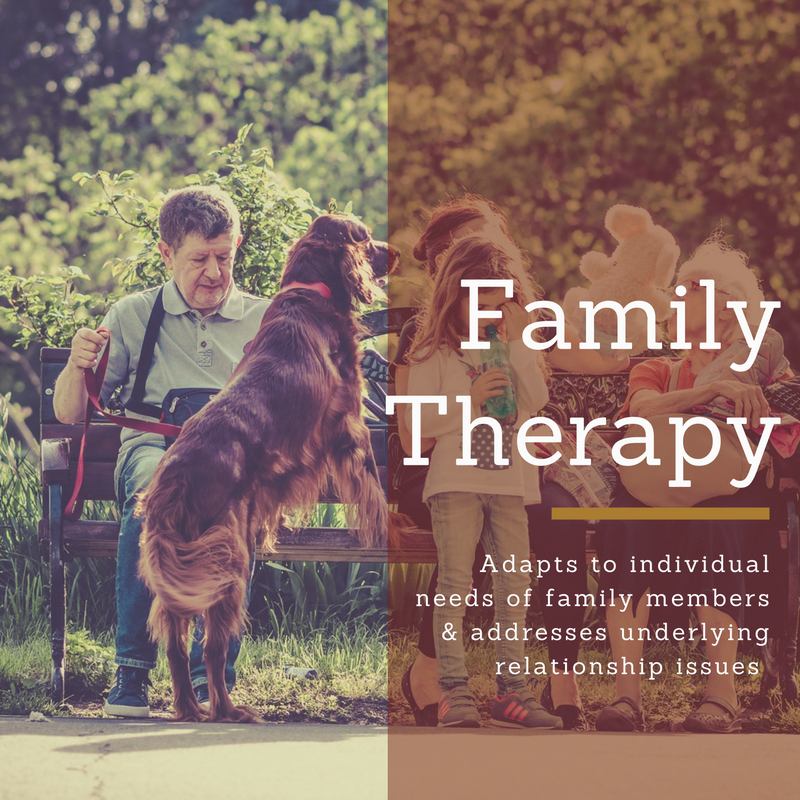
Family Therapy
With Thanksgiving only days away, it seemed appropriate to write about family therapy as part of this month’s therapy series. Up until this point, we have discussed interpersonal therapy, art therapy, and dialectical therapy. All of these therapies tend to be more personal, done one-on-one with a counselor or therapist with possibly some involvement of family members. And while these types of therapies intend to help the patient improve his or her relationships, they revolve around the well-being of the patient rather than the well-being of any specific relationship. As you can guess, family therapy considers the entire entity of the family as being affected by the disease of addiction.
So when a person is getting help with their own, personal addiction, why would the family need to attend therapy together, as well? In many instances, the person who is struggling with the addiction is also attending therapy in order to improve his or her own interpersonal relationships, shouldn’t that be enough?
If you are currently recovering from an addiction or you are just now seeking help, it wouldn’t be hard to figure out that the effects of an addiction spread throughout the whole family. The negative interactions cause the family members to feel lost, frustrated, and may cause them to make inappropriate choices themselves. Not only that, but a person who is struggling with addiction may have to change their lifestyle to accommodate a life free from drugs and alcohol. This may mean that they need to choose a new group of friends, become more involved in their community, or just overall change many things about their lives. The one thing they can’t change is their family. Even if the family has been torn apart because of the effects of the addiction, there usually tend to be responsibilities and bits of the relationships still intact. The intended use of family therapy is to help each individual through the process of recovery, guide the addicted person to healthy recovery, and also strengthen the support system for the person in recovery.
Family therapy often involves many factors and personalized treatments. The reason being: no two families are the same. Each child and spouse may be undergoing different adverse effects to the disease of drug and alcohol use. The struggling individual is likely in residential treatment, while the spouse and children are attending al-anon or nar-anon. Additionally, they may each be in individual therapy as well as attending a family group therapy. Each individual has the right to receive care and validation for his or her own experience, but the family as a unit has its own dynamics that must be addressed, as well. So while it may seem like a lot of work, this is because the family unit is made up of so many working parts that it would not be wise to assume that there is a one-size-fits-all solution.
There is no definite “end” to this type of therapy, unlike many others. It would be difficult to give an ultimatum on when the therapy would need to end because recovery can be long and the dynamics of the family are constantly changing. Children are constantly transitioning, relationships grow or wane, and the person in recovery is present during these sometimes stressful times. While there may be times when the family may have hit a nice stride, there will be unexpectedly difficult times.
If you are in search of a mental health program or a residential treatment program to beat your alcohol or drug addiction, or if you know someone who is in need of help, please feel free to contact us. We are located in Vancouver, WA Portland, OR metro area. We will set you or your loved one up with a personalized treatment plan to provide the best opportunity possible where we treat the whole person.
Phone: 360-397-8246 ext. 7580
Email: [email protected]
